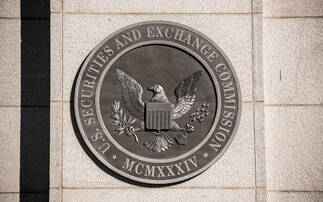Can you give a brief overview of your strategy in terms of what you are trying to achieve for investors, your investment process and the make-up of the investment team?
Mirova's Global Sustainable Equity strategy is a multi-thematic strategy that integrates environmental, social and governance (ESG) analysis around risks and opportunities as an enhanced due diligence process to better understand investments.
Our investment process begins with a thematic assessment of the global universe of listed equities seeking companies that offer solutions for shaping our world and global economy around demographics, technology, environment and governance. The next step in the process is deep fundamental research to identify companies that are well managed, that benefit from strong, sustainable competitive advantages, that have a solid financial structure, and that avoid irresponsible risks. Analysis on a company's environmental, social and governance (ESG) risks and opportunities is deeply embedded in the fundamental research to provide a better understanding of the company's we potentially invest in. In valuing a company we create long-term financial models to identify stocks that are trading at a significant discount to their intrinsic value. In constructing the portfolio, we evaluate conviction around the company's business model, potential upside, liquidity and impact to determine position size with our top 10 positions ranging in weight from 3.0% to 5.0%. The end result of the process is a highly concentrated portfolio with 40 to 60 securities, with high active share (~85-90%) and low turnover (~20%). A robust risk management process, both with and without targets, ensures a well-diversified portfolio with a risk profile similar to the broader market.
How are you positioning your portfolio to prepare for the global recovery from the Covid-19 pandemic?
Looking at our investment approach, our investment process is built on the philosophy that the market is underestimating the growth opportunities supported by long-term secular trends around demographics, technology, environment and governance and that the market underestimates the risks coming from poor ESG practices. The behavioral bias in the market we are looking to exploit is short termism, where, in this industry, short-term measurements and misaligned incentives all contribute to a market that, at least in the short term, is often not rational. It is only when considering investments on a multi-year horizon that positive and negative impacts on the environment and society, or how a company is exposed to a changing global economy, matter. We aren't market timers and we think it is exceptionally challenging to outperform over the long-term with that type of strategy. While we expect a global recovery from the pandemic in 2021, we continue to hold companies we believe will outperform in the long-term, that are trading at significant discounts to their intrinsic values, and have not altered the portfolio significantly towards more cyclically exposed companies that will benefit in the short-term from an economic recovery after the pandemic.
Can you identify a couple of key investment opportunities for your fund you are playing at the moment in the portfolio?
A fairly recent addition to the portfolio is Ball Corporation. Ball Corp. is well positioned to benefit from increased awareness and regulation around single-use plastic as the largest aluminum packaging manufacturer. Ball Corp is well exposed to this environmental transition; aluminum is the more sustainable single-use packaging option for beverages than currently used alternatives. They have significantly higher recycling rates than other materials and are composed of more recycled content than competing packaging types. In addition, they are infinitely recyclable in a true "closed loop", as opposed to plastic which is typically "down-cycled" into products like carpet fiber or landfill liner. While glass is also infinitely recyclable, it is heavier than aluminum and thus requires more energy to transport. As the value per ton of aluminum is quite high and recycled content is desirable for the manufacturer as it reduces manufacturing costs, higher recycling rates and recycled content should remain at high levels relative to plastic and glass which are less economical to recycle. As the largest player in all three geographic regions in which it operates, the company benefits from economies of scale from its manufacturing footprint. Ball Corp has been divesting businesses over the past several years and focusing growth capex on higher growing markets positioning the company to post stronger revenue growth and sustained margin improvement in the years ahead.












